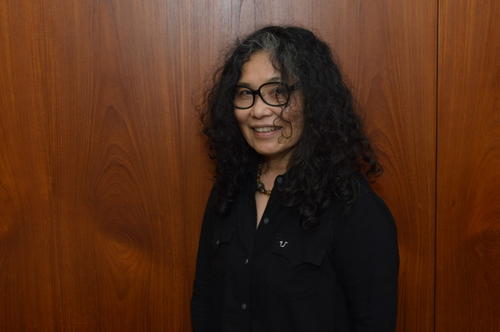Hiromi Itō
Dorothea Schlegel Artist-in-Residence
Research Area 2: "Travelling Matters"
June–August 2022
Looking for Mori Ogai
Mori Ogai (1862-1922) is a renowned author who is considered to be the father of modern Japanese literature. He studied in Berlin, Leipzig and Munich as the surgeon of the Imperial Japanese Army. This happened during a time when Japan was eager to absorb foreign cultures, following its re-opening in 1868. During his stay in Germany, Ogai conducted medical research and absorbed, observed and analysed Western culture. These activities, as well as other experiences including translating various works of Western literature and his romantic life, are manifested in his literary and critical works. Hiromi Ito's book Seppuku-kō, which was published in 2017, is a novel that overlapped his works with the author's own life experiences. During the fellowship, Hiromi Ito hopes to study Ogai's achievement as a translator and research the way he developed himself via the translation of Erlingby the German author, Hans Land
Hiromi Ito was born in 1955 in Tokyo, Japan. She made her debut in the 80s with works that focused on sex and body and also pioneered the genre of "birth/childrearing" essays in this decade. She specialises in modern poetry and, in addition to original poetry/narrative works, is also involved in women's studies, modern translations of Buddhist narratives and sutras, as well as research on Mori Ogai, Ishigaki Rin, Ishimure Michiko, Setouchi Jakuchō and Environmental Literature. In the 90s, she moved to California, USA, before returning to Japan in 2018, where she taught at Waseda University from 2018 to 2021, before moving to Hosei University in 2022. She currently resides in Kumamoto, Japan.
She has received numerous awards including the Takami Award, Murasaki Shikibu Literary Award, Hagiwara Award, Cikada Prize, Noma Literary New Face Award, and Tsubouchi Award.
In the fall of 2023, she was invited again by the EXC2020 with a travel grant to participate in the Workshop and Performance “Transforming a Medieval Saga Into a Contemporary Ballad and Dance Performance”.
Her Artist-in-Residence stay in Berlin resulted in a book titled “Shinrin tsūshin – Ōgai to Berurin ni iku“ (News from the Forest – Travels to Ōgai and Berlin), published in December 2023 with Shunyodo Publisher (Tokyo). The book deals mainly with her Artist-in-Residence explorations in 2022 and refers in a final chapter to her roughly 3 weeks in Berlin preparing the Workshop cum Performance on the basis of her 1993 ballad "Ich bin Prinzess Anju/Watashi wa Anju himeko de aru" in November 2023.
